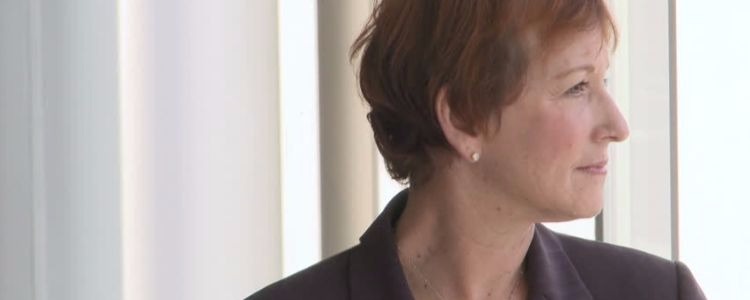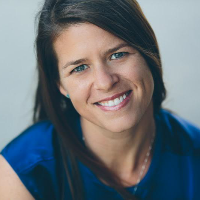Dear Melody: No One Takes My Eating Disorder Seriously As a Mid-Life Adult. What Can I Do?
“Dear Melody” is an advice column by Dr. Melody Moore, a clinical psychologist, yoga instructor, and the founder of the Embody Love Movement Foundation. Her foundation is a non-profit whose mission is to empower girls and women to celebrate their inner beauty, commit to kindness, and contribute to meaningful change in the world. Dr. Moore is a social entrepreneur who trains facilitators on how to teach programs to prevent negative body image and remind girls and women of their inherent worth. Her work has been featured in the books Yoga and Body Image and Yoga and Eating Disorders: Ancient Healing for Modern Illness, as well as in Yoga Journal, Yoga International, and Origin Magazine.
I’m in my late 50s and no one takes my eating disorder seriously. What can I do to get the support I need?
Thank you for writing in to ask about how to gain support. Your doing so is certainly a step in the direction of receiving the support that you need. In my experience, it is vital to have a network of support in order to recover from the destructive nature of any eating disorder. If you find that those in your current circle do not take your disorder seriously, it is likely time to look beyond those people for the help that you need.
In the event that your eating disorder is not being taken seriously because your loved ones are having difficulty recognizing your pain as an attempt to not have to feel the hurt it may cause them, it could be helpful to be extremely direct in your communication to them about what is happening and what you need. There is a chance that your loved ones are in denial because of how painful it may be for them to realize that you are hurting. Their denial could be motivated by love but the impact is devastating. To attempt to break through, try having conversations with each of them.
First, be very specific. Be direct in your communication, and willing to share how long you have been struggling and what the cost of the disease has been for you physically, mentally, and emotionally. Second, be sure and tell each person what it is that you are hoping to receive. Are you asking for help finding resources, or for companionship during eating meals, or for support with food shopping? Do you need someone to simply hold space for you to express your emotions? Do you want to be held accountable for your meal plan?
Let folks know exactly how they can be supportive of you and what you feel like you do and do not need from them. Be sure to include any actions or speech that are causing you harm and ask them to avoid doing or saying these things in the future. Third, be willing to allow people to be who they are and where they are, and to acknowledge that their capacity at this time may not include being able to support you.
For reasons that have nothing to do with you, some people will not be able to understand or to help you through this difficulty. If that is the case, do your best to extend compassion to them and not to personalize their lack of capacity or willingness to help. Recognize where they are and what they are not able to offer you and allow yourself to move toward a new course of action in gaining the support that you need. There is absolutely no use in trying to get something from someone that doesn’t have it to give to you, and spending time and energy doing so will likely serve to support your eating disorder symptoms and sabotage your recovery.
Instead, seek out treatment from mental health professionals. When you find a good match with a therapist who specializes in ED recovery, that person can then help you navigate the relationships in your life and help you to communicate your experience and needs to partners, family, and friends. You deserve recovery and a life without disordered eating and negative self-evaluation. Freedom is possible and full recovery is available. I wish you the best in your process of healing and your return to wholeness.
For recovery resources and treatment options, please visit our resource center. If you or someone you know is struggling with an eating disorder, call ANAD’s Helpline at: (888) 375-7767 or the National Alliance of Eating Disorders Helpline at: (866) 662-1235.
If you are thinking about suicide, call or text the National Suicide Prevention Lifeline at 988. In crisis situations, text “HOME” to 741741 to be connected with a trained volunteer from the Crisis Text Line.





